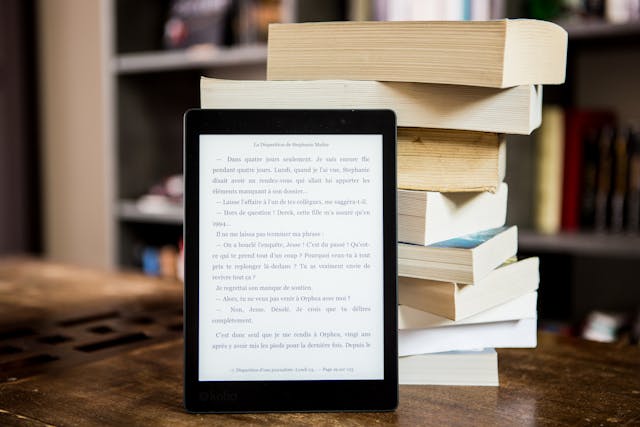The Future of Literature: How Technology Is Transforming the Way We Read
In the digital age, literature is undergoing a quiet revolution. While storytelling remains at the heart of the written word, the way we read, write, and share literature has evolved dramatically. From e-books and audiobooks to AI-assisted storytelling and interactive narratives, technology is shaping not just how we access literature—but how we experience it.

Digital Formats: Expanding Access and Convenience
Traditional print books still hold a special place in many readers’ hearts, but digital formats have reshaped the landscape:
-
E-books: Lightweight, portable, and instantly downloadable, e-books make reading more accessible to people around the globe.
-
Audiobooks: Ideal for multitaskers and those with visual impairments, audiobooks turn commutes, workouts, and chores into literary experiences.
-
Online Libraries and Apps: Services like Kindle Unlimited, Libby, and Scribd offer massive collections of books at our fingertips.
These formats have not only made reading more convenient but also encouraged more people to engage with literature in ways that fit their lifestyles.
Social Media and Reading Communities
Technology has made literature more social:
-
Bookstagram and BookTok have turned reading into a viral, visually engaging activity.
-
Online book clubs and platforms like Goodreads connect readers across continents, allowing people to share reviews, reading goals, and literary conversations.
-
Author-reader interactions on Twitter, Instagram, and newsletters help foster direct connections and build communities around books.
These digital communities are making literature more democratic and dynamic, inviting broader audiences to participate.
Interactive and Immersive Storytelling
Modern literature isn't limited to static pages:
-
Hypertext fiction and choose-your-own-adventure platforms allow readers to shape the narrative.
-
Augmented reality (AR) and virtual reality (VR) offer immersive storytelling experiences.
-
Interactive e-books blend animation, music, and even reader choices, creating a multimedia reading experience.
This shift blurs the line between reading and gaming, opening new frontiers for creativity.
Artificial Intelligence and Creative Writing
AI is beginning to play a role in the creation of literature:
-
Tools like ChatGPT and Sudowrite assist writers with brainstorming, editing, and even drafting.
-
AI-generated poetry and fiction raise questions about authorship and creativity.
-
Personalized content engines can recommend books based on tone, theme, or narrative structure preferences.
While controversial, these tools are increasingly viewed as collaborators rather than replacements for human imagination.
Publishing in the Digital Era
Self-publishing and indie publishing have gained massive traction:
-
Platforms like Amazon Kindle Direct Publishing (KDP) and Wattpad have empowered aspiring writers to share their work without traditional gatekeepers.
-
Crowdfunding sites like Kickstarter and Patreon enable niche projects to find supportive audiences.
This democratization has broadened the kinds of voices and stories that reach readers, leading to more diversity in literature.

Challenges and Concerns
The future isn’t without its challenges:
-
Digital fatigue may affect how much people read.
-
Attention spans and fast-scrolling habits might reduce deep, focused reading.
-
AI and algorithms raise questions about originality and the value of human-authored content.
-
Privacy and copyright issues continue to evolve with the tech.
Balancing innovation with thoughtful engagement will be key to preserving the soul of literature.
Conclusion
Technology is not replacing literature—it’s reimagining it. Whether you're reading on paper, screen, or listening on-the-go, the essence of storytelling endures. The tools may change, but the need for meaningful narratives remains timeless.
In a world driven by bytes and bandwidth, literature reminds us of the power of imagination—and technology is only expanding that horizon.












